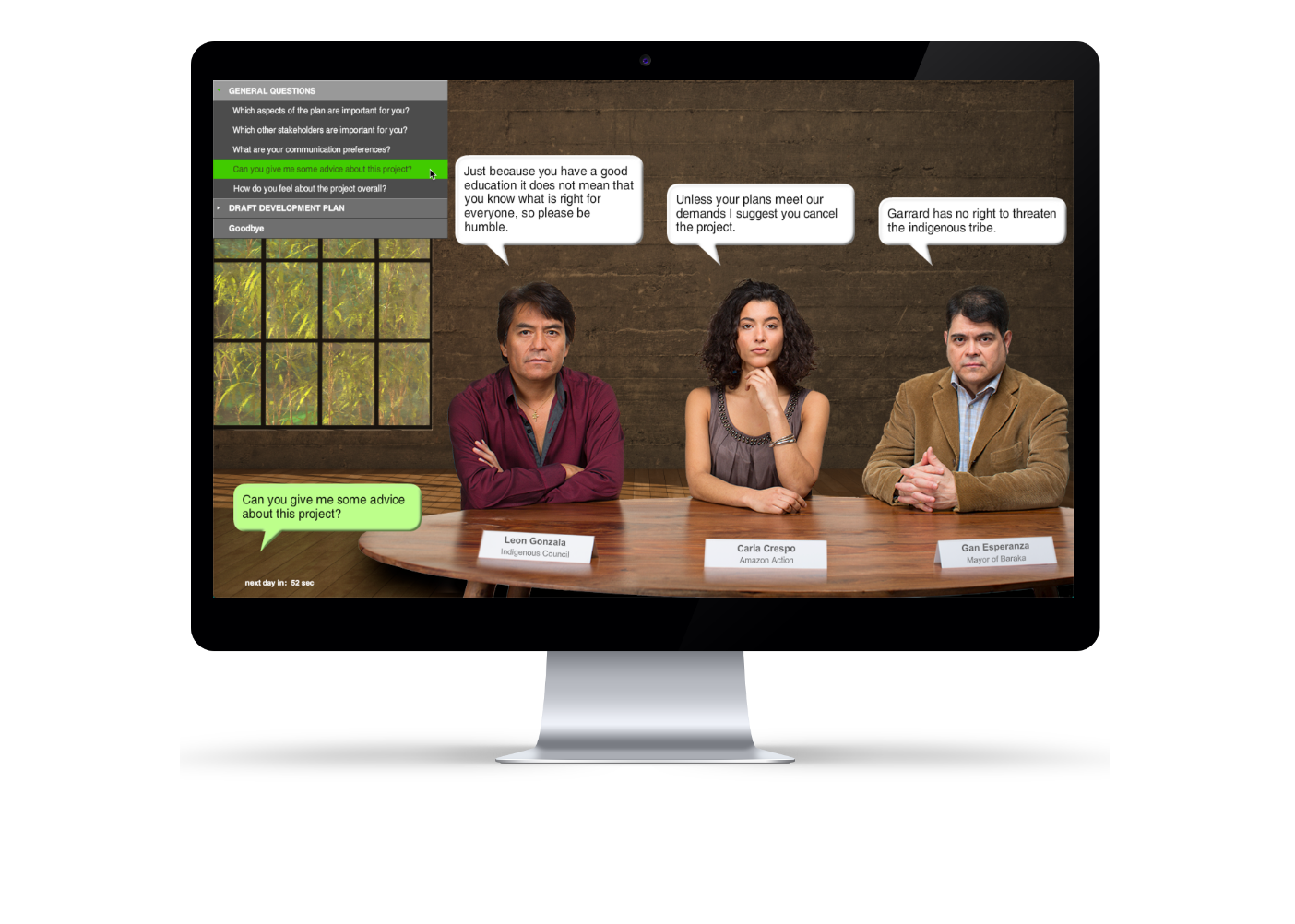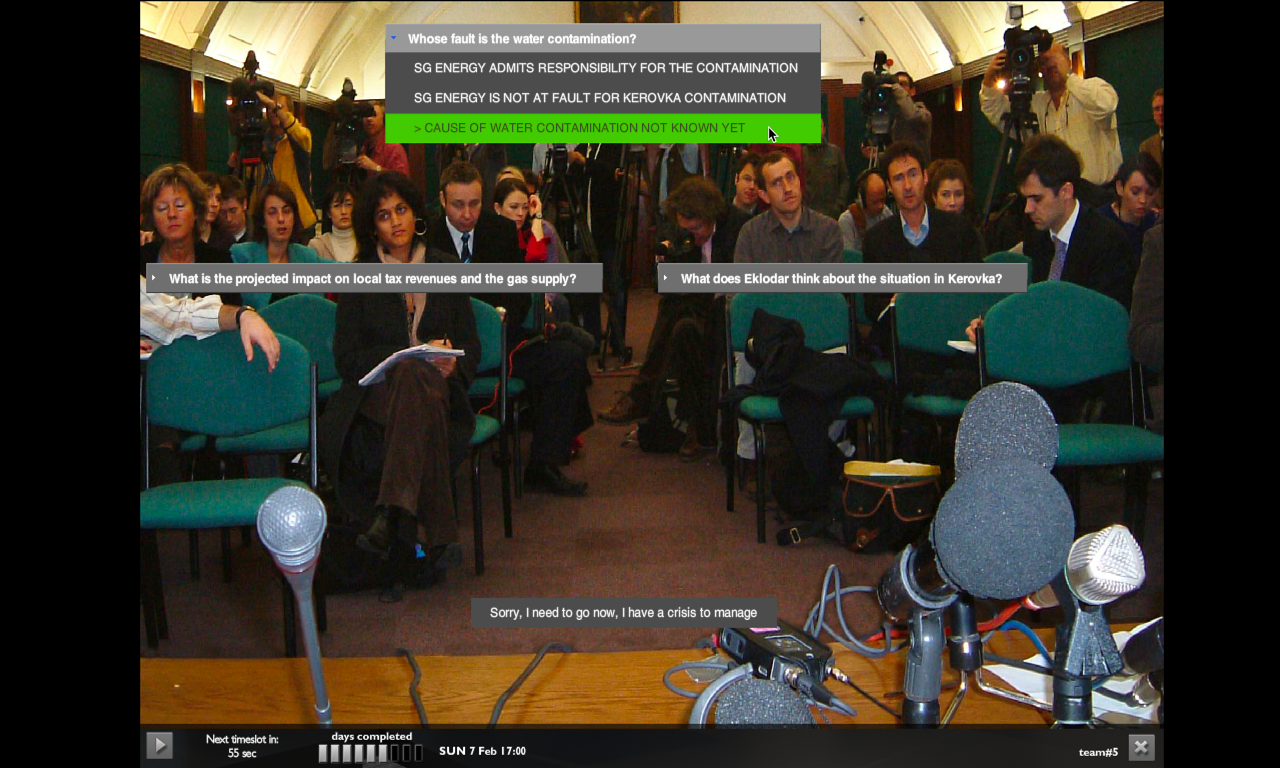The challenge of... leading responsibly & sustainably
Business leaders, for a long time, have been judging the difficult balance between financial objectives and the impacts of their activities on society and the environment. This balance is increasingly important, as shown for example by the rise in “ESG” (Environmental, Social, Governance) investing, i.e. where investors are increasingly considering these non-financial factors in their investment decisions.
Socially responsible companies or sustainable organisations often articulate their approach to this challenge as…
- sustainable business practices
- ethical leadership and ethical business practices
- corporate social responsibility (CSR) strategy
- sustainability strategies
- corporate responsibility policy
- corporate social responsibility
- responsibility and sustainability policy
- sustainable development policy

Find a solution for your challenge
Our range of pioneering simulations address the needs of modern leaders, offering engaging and effective learning.
“The global exercise of ethical, values-based leadership in the pursuit of economic and societal progress and sustainable development, and the art of motivating, communicating, empowering, and convincing people to engage with a new vision of sustainable development and the necessary change that this implies.” (The United Nations Global Compact and European Foundation for Management Development)
“The management of a corporation’s interactions with society aimed at addressing the corporation’s various stakeholder concerns and contributing to the multiple bottom lines of economic, social, and environmental performance. The leader is thereby the one who enables and moderates interactions with the various stakeholders of the company.” Manage magazine
- People, planet or profits
- Balancing short term profits versus longer term value
- Sourcing more expensive local materials, versus less expensive from overseas
- Sourcing more expensive local labour, versus less expensive from overseas
- Developing more sustainable energy (e.g. wind farm) projects that face community opposition
- Building more expensive but environmentally less impactful (e.g. underground infrastructure)
- Developing a ‘work from home’ policy that satisfies diverging employee preferences
- Balancing the high capital cost of a new electric vehicle fleet, versus the reduced operating cost
Responsible & sustainable leadership
is necessary in many contexts, including:
Real world challenges
Prendo’s customers face many challenging questions when leading responsibly & sustainably:
Advanced simulations can help leaders address these real world challenges
At Prendo, we believe that the complex skills and deep understanding that are needed for leading responsibly & sustainably are best developed with advanced simulations that provide accelerated experiential learning and the opportunity to explore the underlying cause and effect models.
Talk to us to understand if our simulations can address your specific challengesLearning to lead responsibly & sustainably
To address the challenge of leading responsibly & sustainably, leaders need a combination of skills (know-how) and understanding (know-that), in the same way that the driving test combines the practical and the theory:
leaders need to be able to…
- identify and prioritise stakeholders
- quantify stakeholder related risks & opportunities
- balance conflicting stakeholder interests
- develop trust with stakeholders
- protect shareholder value & corporate reputation
leaders need to understand…
- what “responsible” and “sustainable” mean in practice
- what “purpose” is, and the range of different success parameters
- the key concepts of business ethics, including the difference between deontology and utilitarianism


